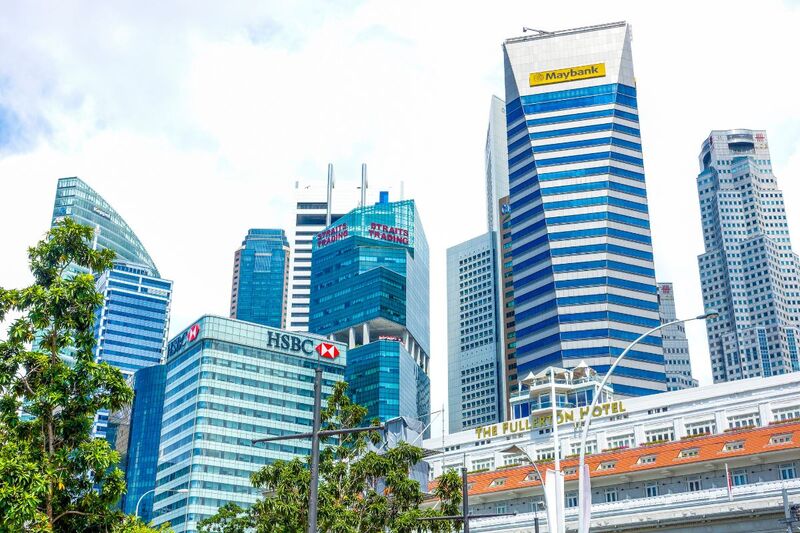Too Many Sick Days: What Is Considered Excessive Absenteeism in the Workplace
In today's evolving workplace culture, especially post-pandemic, absenteeism has become one of the top HR concerns. But here's the real question: When does being absent become excessive?
With rising search trends around "What is considered excessive absenteeism," it's clear that both employers and employees are seeking clarity. In this article, we’ll explore how absenteeism is defined, what’s considered excessive, how it affects teams, and what both sides can do about it — with data, best practices, and legal references in the Singapore context.
📊 What Do the Numbers Say?
- In Singapore, a Ministry of Manpower (MOM) study revealed that absenteeism accounted for over 6% of lost workdays across sectors in 2022.
- According to a 2024 Aon Singapore report, employee health-related absenteeism costs businesses more than S$3.3 billion annually.
- Google Trends data shows that the phrase “excessive absenteeism” has surged in search interest by over 160% globally over the past year.
Clearly, it's an issue that impacts productivity, morale, and ultimately — the bottom line.
🏥 What Is Absenteeism?
Absenteeism refers to frequent or habitual absence from work, usually without valid cause or prior notice. It differs from:
- Scheduled leave (e.g. annual leave, medical leave)
- Emergency absences with legitimate reasons
- Presenteeism — showing up but being unproductive due to illness or disengagement
🚨 When Does Absenteeism Become Excessive?
There’s no one-size-fits-all answer, but general HR benchmarks indicate that:
- More than 3 unexcused absences in a 30-day period may be considered excessive.
- Frequent short-term sick leave (e.g. 7–10 days per quarter) could raise red flags, even if medical certificates are provided.
- In some cases, a pattern of Mondays or Fridays off could indicate “soft absenteeism”.
In Singapore, employers typically follow guidelines set by MOM, the Employment Act, and their own internal HR policies. But discretion and fairness must always apply — especially when medical or caregiving needs are involved.
🔍 Why Does It Matter?
For Employers:
- Operational disruptions: Workflows and deadlines suffer when key staff are constantly absent.
- Increased costs: Temporary replacements, overtime pay, and reduced productivity all add up.
- Team morale: Colleagues may feel overburdened or resentful.
For Workers:
- Risk of disciplinary action: Absenteeism can lead to warnings, performance reviews, or even termination.
- Damage to career reputation: Employers may perceive absenteeism as a lack of commitment.
- Missed growth opportunities: Being away too often could mean missing out on visibility, leadership tasks, or training.
👩💼 Legal and HR Guidelines in Singapore
In Singapore, under the Employment Act:
- Employees are entitled to 14 days of paid outpatient sick leave and 60 days of paid hospitalisation leave (inclusive of the 14 days) per year, with valid MCs from approved medical practitioners.
- Beyond this, excessive or unapproved leave may be grounds for disciplinary action or termination, depending on company policy.
Employers are encouraged to:
- Keep proper attendance records
- Use progressive discipline systems
- Offer employee assistance programmes (EAPs) where necessary
🛠️ Tips for Managing and Preventing Absenteeism
For Employers:
- Track attendance patterns and provide feedback early
- Conduct return-to-work interviews to understand underlying causes
- Promote flexible work arrangements and mental health support
For Employees:
- Communicate proactively when you’re unwell or unable to work
- Use leave responsibly and avoid last-minute call-ins unless urgent
- Seek HR support if burnout or personal challenges are affecting your attendance
Reeracoen’s Perspective
At Reeracoen, we understand that consistency, communication, and compassion are key. We advise our clients to approach absenteeism not just as an HR issue — but as a people issue. Whether you’re managing a team or trying to protect your work-life balance, clarity around absenteeism benefits everyone.
Let’s aim for workplaces where presence is valued, but people are also supported.
Seeking Your Next Career Opportunity?
Submit your CV — Our trusted Career Consultants will review your resume and contact you if we find a position that matches your profile!
OR
Looking to Hire?
Please fill in this Inquiry Form — our Recruitment Consultants will be in touch with you soon!
Disclaimer:
The information provided in our blog articles is intended for general informational purposes only. It is not a substitute for professional advice and should not be relied upon as such.
While we strive to provide accurate and up-to-date information, the ever-evolving nature of certain topics may result in content becoming outdated or inaccurate over time. Therefore, we recommend consulting with qualified professionals or experts in the respective fields for specific advice or guidance. Any actions taken based on the information contained in our blog articles are solely at the reader's discretion and risk. We do not assume any responsibility or liability for any loss, damage, or adverse consequences incurred as a result of such actions.
We may occasionally provide links to external websites or resources for further information or reference. These links are provided for convenience and do not imply endorsement or responsibility for the content or accuracy of these external sources. Our blog articles may also include personal opinions, views, or interpretations of the authors, which do not necessarily reflect the views of our organisation as a whole. We encourage readers to verify the accuracy and relevance of information presented in our blog articles and to seek professional advice when needed. Your use of this website and its content constitutes acceptance of this disclaimer.
References
1. Ministry of Manpower – Singapore Employment Act
2. Straits Times – More employees absent from work, causing productivity issues
3. Aon Singapore – Rising cost of health-related absenteeism



